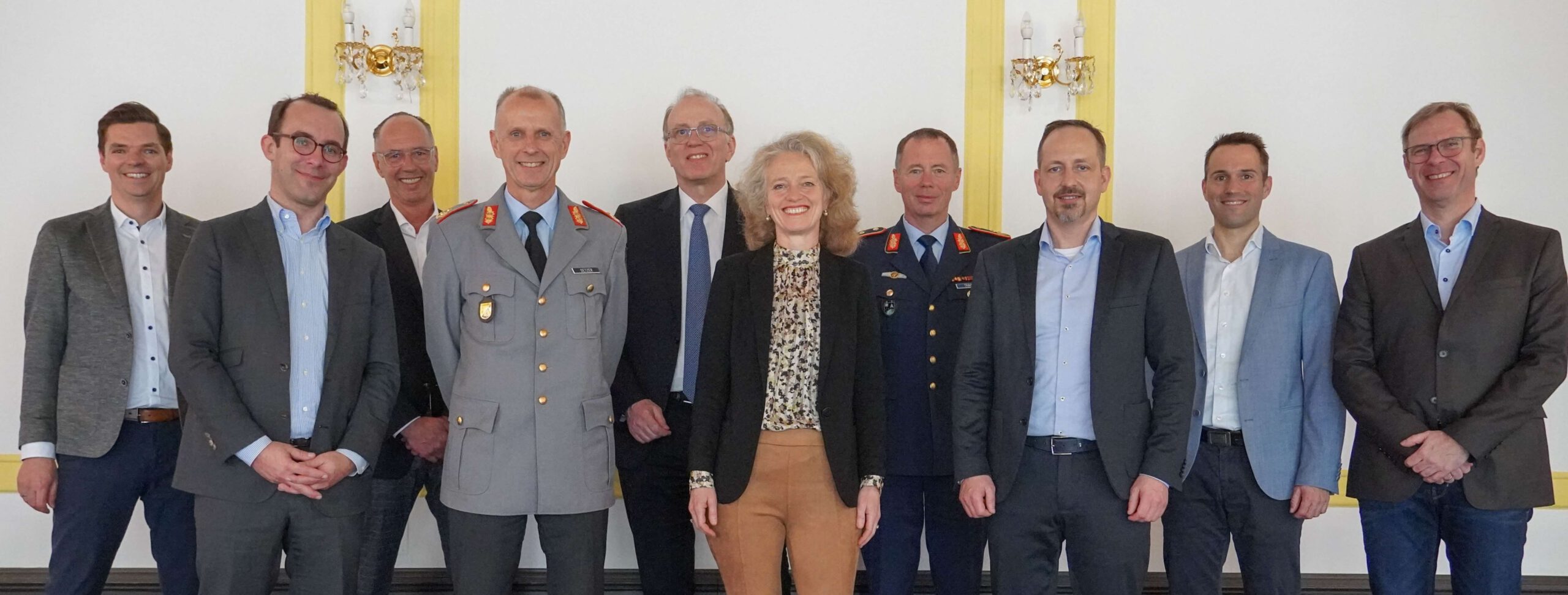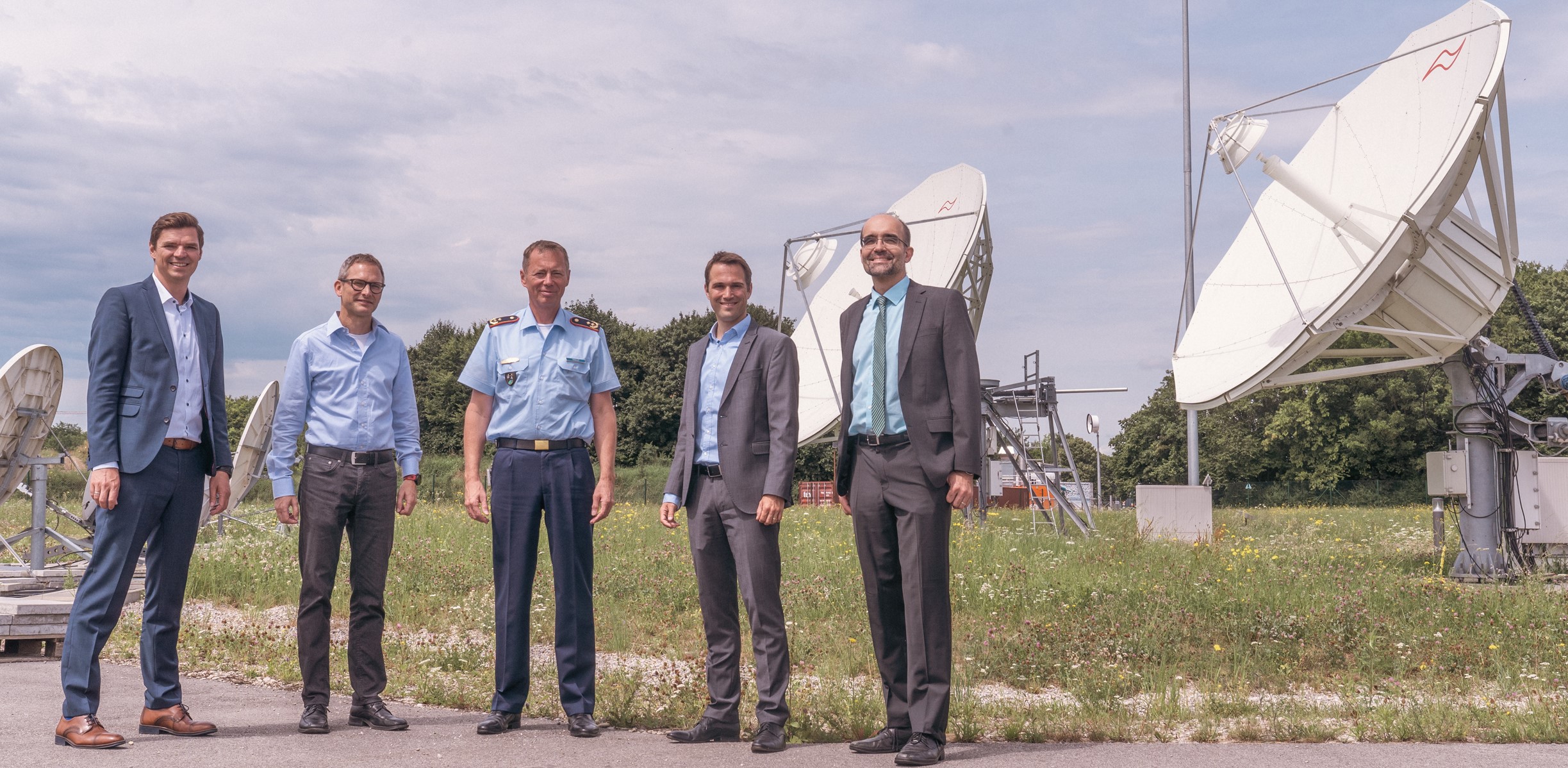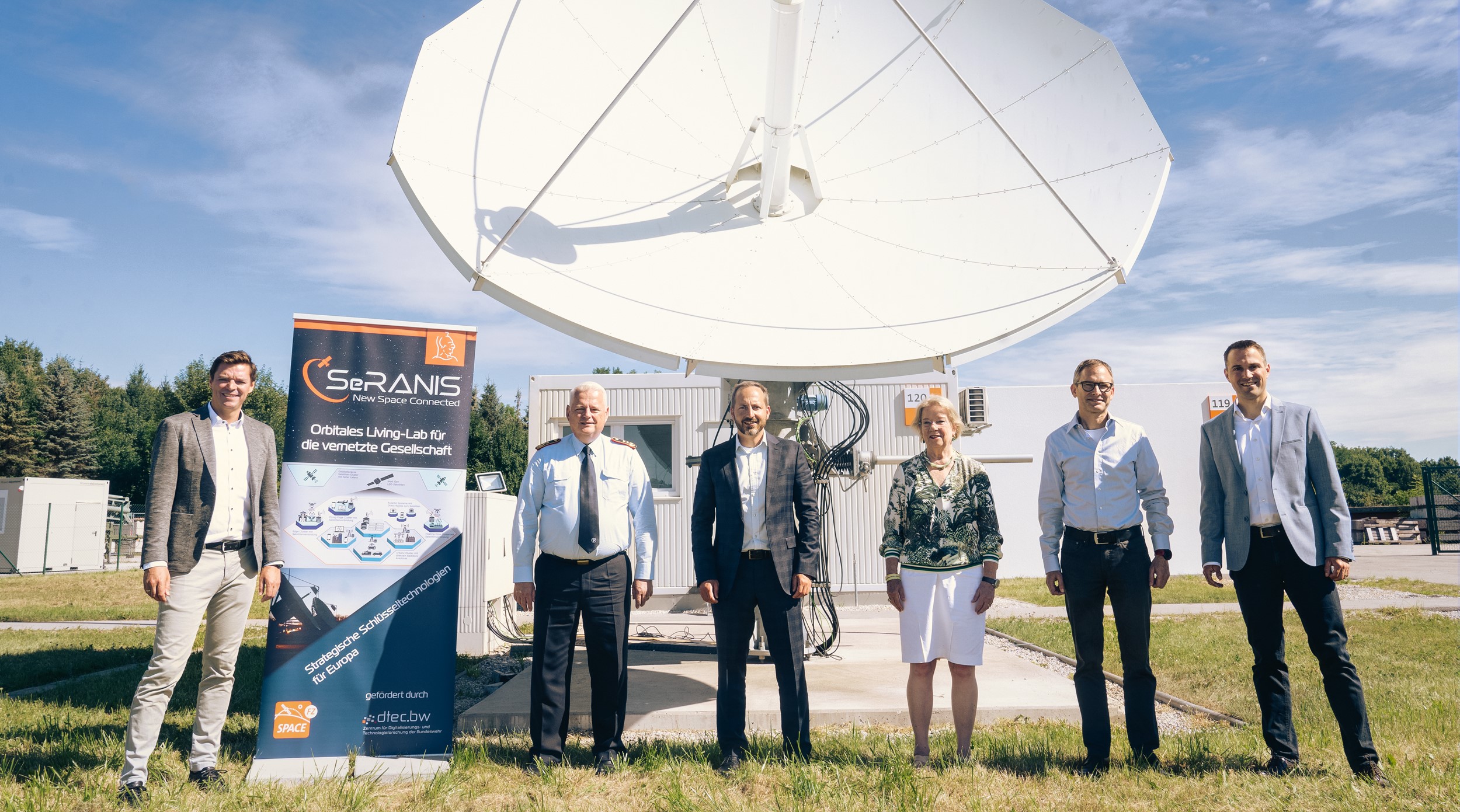June 2022: The use of Starlink in the Bundeswehr has been considered and discussed for some time.
Sven Weizenegger, Head of the Cyber Innovation Hub of the Bundeswehr (CIHBw), simply asked Elon whether Starlink could be tried out in the Bundeswehr.
Hi @elonmusk, Germany speaking. Let’s try out Starklink for the Bundeswehr. We’re waiting for your call. Let’s make this happen.
19.05.2022 Sven Weizenegger, Head of Bundeswehr Cyber Innovation Hub (CIH).
(Source: twitter.de)
Starlink is a satellite network provided by Elon Musk’s space company that claims to provide worldwide location-independent internet access.
Mr. Weizenegger’s tweet was preceded by extensive tests of the Starlink system at the SPACE research centre of the UniBw Munich.
“Under the heading of “care communication”, the German Armed Forces have always provided specific satellite communication networks for their servicemen and women deployed abroad, so that they can use as many of the same digital applications and services as possible during their free time as they do at home”
says Prof. Andreas Knopp, one of the spokespersons of the FZ SPACE.
“With the introduction of 5G in mobile communications, the digital offering will now expand significantly once again and place new demands on the satellite networks as well. Satellite constellations in Low Earth Orbit offer some advantages here. For this reason, we started early to also investigate such systems using Starlink as an example and to subject them to extensive tests.”
Starlink can be used very reliably for typical Internet applications
Florian Völk, project manager for the Starlink system tests, adds “Our tests with the Starlink system have shown that the system in the current beta phase can already be used very reliably for typical Internet applications such as live video streaming, web browsing, and voice communication. The system, with data rates of 200 Mbps downlink and 20 Mbps uplink with a latency in the range of 40 ms, enables a comparable quality of service to the current generation of mobile networks.
Using VPN applications such as WireGuard, users can also establish encrypted end-to-end communications.”
The SPACE research centre tests and evaluates systems for space communication centrally on behalf of the German armed forces and industry. As part of the dtec.bw project SeRANIS, the university’s own ground station is also being made fit for other satellite constellations as well as for optical satellite links.
“Regarding the cyber security of the Starlink system, we are aware that this is beyond the control of the end user”
Knopp comments on the concerns already expressed by various parties. “However, this is also the case with mobile networks at home. The system should therefore be strictly limited to recreational applications. This is all the more true since Starlink, according to its own information, now also has users in Ukraine and is therefore exposed to an increased cyber threat. As the recent attack on the Ka-Sat system has shown, global collateral damage must be expected in attacks on satellite networks.” The SPACE research centre had been working hard on the cyber attack on the Ka-Sat system of the American satellite operator Viasat.
From the researchers’ point of view, the fact that the troops are now resorting to a solution from the USA makes them even more aware that their own European solution is not available, but is urgently needed.






